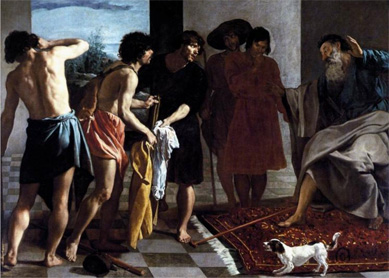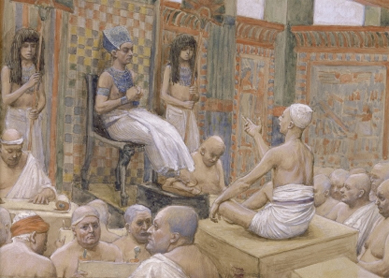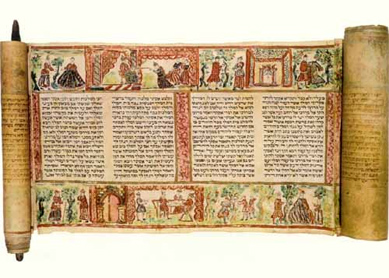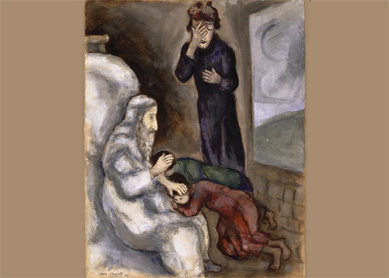According to Gen 37-50, the young Joseph, a precocious dreamer and favorite son of his father Jacob, incites the envy of his brothers. One day, his brothers take revenge: they capture him and sell him into slavery. Many years later, famine breaks out, both in Egypt and in the land of Israel, where Jacob and his family live. Jacob sends his sons to Egypt to buy grain from the large stockpiles stored with commendable foresight by the Egyptian state. The dignitary who receives the foreign delegation recognizes and eventually makes himself known to them: he is none other than their long-lost brother Joseph. He had entered Egypt as a slave, but since he alone could make sense of Pharaoh’s dreams—dreams that predicted the coming famine—he was appointed first minister of Egypt. Joseph forgives his brothers, and they ultimately bring their families and even their old father to live in Egypt.
Is Joseph a wizard?
In the world of the Joseph story, someone who knew how to foretell the future from dreams was a very powerful wizard. Joseph’s command of this extraordinary skill gave him a place near the top of the social hierarchy—he ranked next to the king of Egypt, who was the world’s most powerful man. Dreams figure prominently in the tale of Joseph. As fame of his prowess spread, Joseph was invited to interpret royal dreams.
Other indications lend support to the idea that Joseph is seen primarily as a wizard. As a boy, he foretold events. He owns a precious cup used for divination. Another item, mentioned at the beginning of the story, is the long-sleeved coat (traditionally rendered “coat of many colors”), a gift from his father. This could be the magic cloak he needed for his career as a diviner. When Joseph was sold by his brothers, he lost this cloak, but he did not lose his magical powers. As a wizard, Joseph is not an isolated figure in the Bible; he may be compared with Moses (whose wizardry surpasses that of the Egyptian sorcerers) and Daniel (who interprets the portentous dream of the king of Babylon).
Is Joseph a model hero whom one should imitate?
Joseph is presented as a man with a clear moral compass. Here are his rules: One, forgive others who have wronged you; forgiveness is superior to, and nobler than, revenge. Two, resist temptations, and, specifically, don’t let yourself be seduced by a married woman. (The wife of Joseph’s master, Potiphar, tries to seduce him; see Gen 39.) Three, when you live as a newcomer in a foreign country, offer your advice and service to the state so that wherever you are, you are perceived as a blessing. Four, help other individuals when they are in need, especially your fellow countrymen, all of whom are your true brothers and sisters. Impressed with rules three and four, modern interpreters of the Joseph story tend to identify the storyteller as a Diaspora Jew: he seems to encourage other Jews who live in the Diaspora (for example, in Egypt) not simply to profit from their host society but actually to contribute to the general well-being. Moreover, Diaspora Jews who have already managed to climb the social ladder are told to take care of recent immigrants. Similar Diaspora teachings are conveyed by other biblical tales in which a hero or a heroine lives at the court of a foreign king—for instance, in the stories of Daniel and Esther.
There is one aspect of Joseph’s character that can seem problematic to some modern readers: his cunning. Before the brothers depart, their sacks having been filled with grain, Joseph secretly gives orders for his silver goblet—a precious drinking cup that doubles as an instrument of divination—to be hidden in the sack of his brother Benjamin, to make sure that he was kept hostage in Egypt. Cunning, of course, was valued by ancient societies, and here this attribute is used to add another dramatic scene to a story based on unexpected twists and turns.




